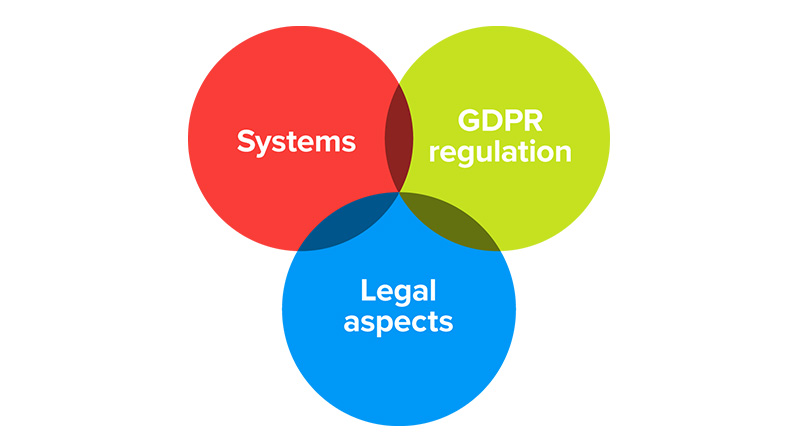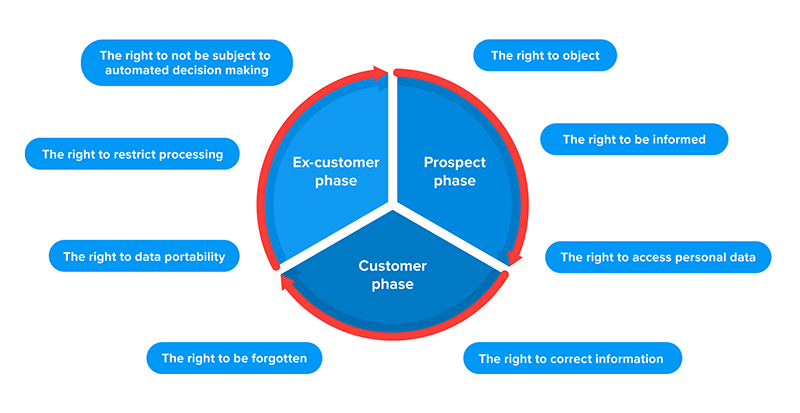Intro to General Data Protection Regulation (GDPR)
GDPR is extremely relevant for all of us, as individual companies, but very much because we work in the CRM space.
What is GDPR?
GDPR provides citizens of the EU with greater control over their personal data and assurances that their information is being securely protected across Europe, regardless of whether the data processing takes place in the EU or not.
Personal data can be a name, email, address, date of birth, personal interests, unique identifiers, digital footprints, and more. This is is typically the kind of data you store in your CRM system.
How does GDPR impact your business?
GDPR imposes strict requirements on the way a business collects, stores, and uses this customer data.
Suffice it to say that a CRM system alone cannot make your business GDPR compliant. GDPR encompasses 3 main areas that every business needs to consider - an understanding of the GDPR itself, and an understanding of the legal aspects of the regulation and how it will affect the way you handle personal data, and finally the systems to keep all your customer data.

Your SuperOffice solution is such a system that supports the collection and management of personal data in a secure system.
As a business, you will need to document:
- The purposes for storing and processing personal data,
- The legal basis for doing so, and
- The sources where personal data was collected from.
Once you’ve outlined your privacy policy, you can configure your SuperOffice CRM solution to support these privacy rules.
In this video, we will show you how to set up privacy settings for GDPR in SuperOffice CRM. You will need to have the administrator’s rights to do this with the consent management features in SuperOffice CRM.
8 GDPR privacy rights
SuperOffice CRM can support the 8 GDPR privacy rights across the entire personal data lifecycle: from the 1st time you collect a contact’s data and register it in your CRM system, to the point when you no longer need to store it.

Disclaimer
Note
This content is not to be considered legal advice and should be used for information purposes only.